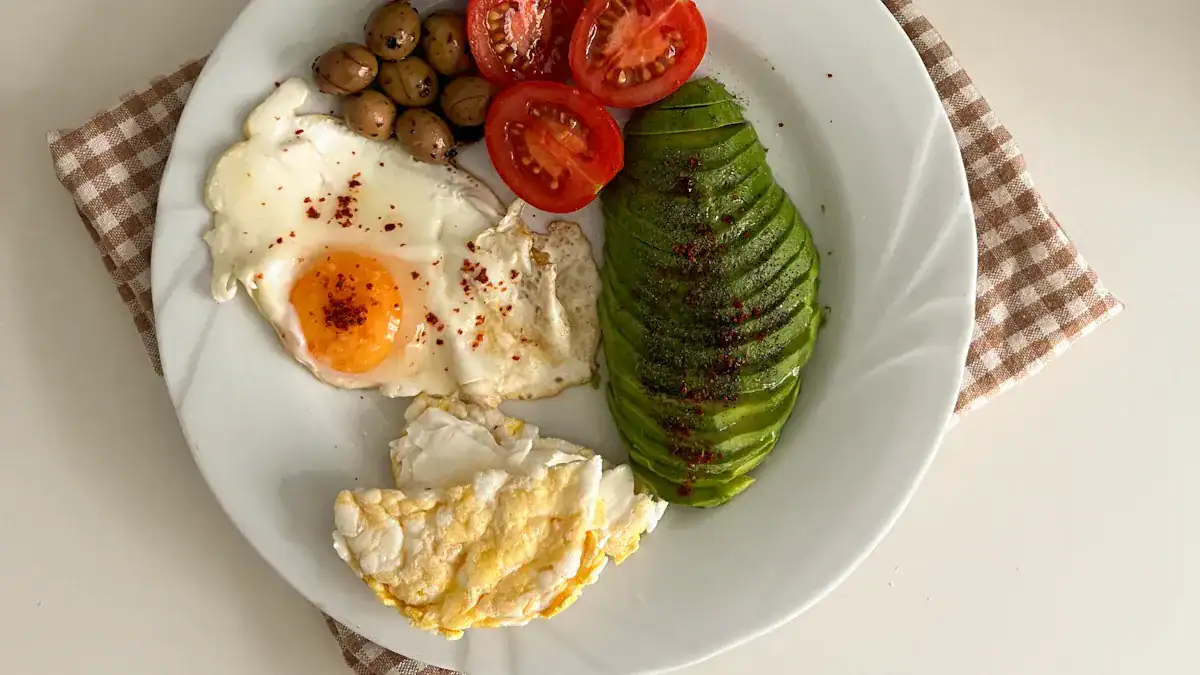
What truly happens when you commit to eating watermelon daily for a week? You might expect a tasty treat, but this simple change offers amazing results. Imagine enhanced hydration, thanks to watermelon being 92% water, giving you a noticeable boost in energy. This delicious watermelon also contributes to a feeling of overall wellness and improved health. Eating watermelon every day isn’t just about enjoying a sweet fruit; this dietary choice brings significant short-term benefits. Prepare to discover the surprising transformations this natural watermelon can bring.
Key Takeaways
Eating watermelon daily helps you stay hydrated and gives you more energy.
Watermelon has special parts that fight bad inflammation in your body.
Watermelon can help you manage your weight because it fills you up without many calories.
Watermelon has good things like Vitamin C and lycopene that protect your body’s cells.
You should eat watermelon in the right amounts, especially if you have certain health conditions like diabetes or kidney problems.
Amazing Results: Daily Watermelon Benefits

Eating watermelon every day for a week brings you many amazing results. You unlock a range of health benefits that support your overall well-being. This superfood is packed with nutrients and offers significant advantages for your health.
Enhanced Hydration and Energy
Watermelon is a champion for hydration. It contains over 90% water. This high water content helps you stay hydrated throughout the day. Proper hydration is crucial for every bodily function. It supports your energy levels and helps your organs work efficiently. When you eat watermelon, you replenish your daily fluid intake. This helps your body maintain its fluid balance. You feel more energetic and less fatigued. This simple fruit helps your body perform at its best.
Anti-Inflammatory Effects
Watermelon offers powerful anti-inflammatory effects. It contains beneficial plant compounds that help reduce inflammation in your body. One key compound is lycopene. Lycopene is a potent antioxidant. While you might think of tomatoes as the main source, watermelon provides a significant amount of lycopene. Red-fleshed varieties of watermelon have almost 40% more lycopene than tomatoes. You absorb lycopene from watermelon easily. This helps your body combat inflammation. Reducing inflammation is vital for long-term health and can protect against various chronic diseases.
Weight Management Support
If you aim for weight management, watermelon is an excellent choice. It is notably low in calories.
Nutrient | Amount |
|---|---|
Calories | 46 |
A 100-gram serving of watermelon contains only about 46 calories. This makes it a satisfying snack without adding many calories to your diet. The high water content and natural fiber in watermelon help you feel full. This improved satiety prevents overeating.
A study investigated how watermelon affects satiety and appetite. Researchers compared watermelon to a low-fat cookie snack. They found that eating watermelon led to much greater satiety. You feel less hungry for up to two hours after eating watermelon. The low-fat cookie only reduced hunger for 20 minutes. This study concluded that watermelon promotes greater satiety. It helps reduce your appetite. This is partly due to its high water content. The water increases volume in your stomach. This helps with digestion and makes you feel full. The study also showed that four weeks of watermelon consumption reduced body weight and blood pressure. It also improved blood lipid profiles. These amazing results suggest that watermelon can help you manage your weight. It serves as a healthy alternative to refined carbohydrate snacks.
Antioxidant Power
Watermelon is a superfood packed with nutrients and antioxidants. These compounds protect your cells from damage. You get several specific antioxidants from watermelon. These include:
Vitamin C
Vitamin A (from beta-carotene)
Lycopene, a powerful carotenoid antioxidant
Polyphenolic compounds, such as phenolic acids and flavonoids
These beneficial plant compounds contribute to your overall health. They help fight oxidative stress. While watermelon is rich in these protective substances, its ORAC score (Oxygen Radical Absorbance Capacity) is lower compared to some other fruits. For example:
Fruit | ORAC Score (per serving) |
|---|---|
Watermelon | 216 (per cup) |
Avocado | 1,983 |
Kiwi Fruit | 698 (per fruit) |
Pineapple | 1,229 |
Pear (green) | 3,172 (per fruit) |
Navel Orange | 2,540 (per fruit) |
Red Grapes | 2,016 (per cup) |
Pink Grapefruit | 1,904 (per half fruit) |
Watermelon has an ORAC score of 216 per cup. This places it among the lower antioxidant fruits by this measure. Its high water content makes its ORAC value appear lower per gram. However, you still receive valuable antioxidants like Vitamin C and lycopene. These nutrients support your immune system and aid skin health. They also contribute to heart health and may help reduce the risk of certain types of cancer. The overall nutrition you get from watermelon makes it a valuable addition to your diet.
Eating Watermelon Every Day: Tips & Recipes

You can easily add watermelon to your daily diet. This section gives you practical advice. You will find creative ways to enjoy this fruit.
Creative Ways to Enjoy Watermelon
Think beyond simple slices. You can make frozen treats. Simple frozen watermelon cubes are a healthy alternative to popsicles. Blend watermelon with other fruits and yogurt for refreshing smoothies. You can also make watermelon salsa. This zesty salsa has diced watermelon, red onions, jalapeños, cilantro, and lime juice. It tops tacos or grilled meats well. Try a watermelon and feta salad. Chunks of watermelon mix with crumbled feta, fresh mint, and balsamic reduction. This creates a delicious salad. Add watermelon slices to water for infused water. This gives you a subtly sweet, low-calorie beverage. Pre-cut watermelon serves as a quick and healthy snack. For breakfast, incorporate watermelon into avocado toast with mint, feta, and lemon zest. For lunch, create a watermelon buddha bowl. It has avocado, cucumber, cherries, almonds, rice, and your choice of protein. At dinner, watermelon-avocado salsa can top broiled salmon. Serve it with steamed broccoli and brown rice. Watermelon sorbet makes a great dessert.
Simple Watermelon Recipes
Many simple recipes use watermelon. You can make a fruit salad pudding. This uses fresh, seasonal fruits like melons. Try refreshing watermelon ice. Its high water content makes a delicious frozen treat. It is like snow cones but served in a bowl. Make take-along watermelon skewers with feta and mint pesto. These are quick appetizers or snacks. Fruit salad spring rolls offer a sweet snack. They use julienned watermelon, green apple, and pineapple. Wrap them in rice paper with a Greek yogurt and tahini dipping sauce. A fresh watermelon fruit smoothie is easy. Puree 1-1.5 cups of chopped watermelon with 1 cup of ice and a little water or juice. This makes a refreshing smoothie. Creamy watermelon chia seed pudding is tangy and sweet. It is ideal for breakfast or an afternoon snack. Easy watermelon skewers with prosciutto are colorful. They have a balsamic reduction drizzle. Watermelon kiwi popsicles are healthy and refreshing. Watermelon yogurt pops use Greek yogurt. A watermelon smoothie bowl is versatile. It works for snacks, desserts, or breakfast.
Daily Consumption Best Practices
Eating watermelon every day is simple. Choose ripe watermelon for the best flavor. Store cut watermelon in the fridge. Enjoy it as a snack, in meals, or as a drink. You can make watermelon juice easily. Just blend and strain. Remember to balance your diet with other fruits and vegetables.
Watermelon: Important Considerations
You should understand a few important facts about watermelon. This helps you enjoy it safely and get the most from this fruit.
Nutritional Profile and Sugar Content
Watermelon offers great nutrition. It is very low in calories. A 100-gram serving of watermelon provides about 38.90 calories (kcal). This makes it one of the lowest-calorie fruits you can eat. You get good hydration and essential vitamins without many calories.
You might wonder about watermelon’s sugar content. Watermelon has a glycemic index (GI) of 75.0. This classifies it as a high GI food. However, its glycemic load (GL) is 5.6, which is low. This means that while the sugar in watermelon can enter your bloodstream quickly, the total amount of sugar in a typical serving is not high. More recent data from 2021 even suggests an average low GI of 50 for watermelon. This makes the GL for a 120g portion about 4 (low).
Metric | Value |
|---|---|
Glycemic Index | 75.0 |
Glycemic Load | 5.6 |
Who Should Exercise Caution
Most people enjoy watermelon without issues. However, you should exercise caution in certain situations.
Digestive Issues: Eating too much watermelon can cause bloating, gas, or diarrhea. This happens because of its high water and fructose content. People with sensitive digestive systems might notice this more.
Prediabetes or Diabetes: Large amounts of watermelon can cause blood sugar spikes. This is due to its GI. You should control your portion sizes if you have these conditions.
Kidney Disease: Watermelon contains potassium. If you have chronic kidney disease, your body might not remove potassium efficiently. This can lead to too much potassium in your blood.
Medication Interactions: Some medications can interact with watermelon. These include diuretics, ACE inhibitors, ARBs, and beta-blockers. Combining these with watermelon’s potassium can increase potassium levels, especially if you have kidney or heart conditions. Always talk to your doctor about your diet and medications.
Excessive intake of watermelon can also lead to other issues. You might experience nausea or indigestion from too much lycopene. This is rare, but it can happen if you consume more than 30 milligrams of lycopene daily. Your overall health benefits from balanced eating.
Selecting a Ripe Watermelon
You want to pick a perfectly ripe watermelon. Here are some tips to help you choose the best one:
Lift It: A ripe watermelon feels heavier than its size suggests. This means it has more water inside, making it juicier.
Look for a Field Spot: Check for a creamy or buttery yellow spot on the bottom. This “field spot” shows where the watermelon rested on the ground. A white or pale spot means it was picked too early.
Check for Webbing: You might see brown, web-like lines on the rind. These are scars from pollination. More webbing often means a sweeter fruit.
Thump Test: Gently tap or flick the watermelon’s surface. A hollow sound suggests it is ripe and juicy. A high-pitched ringing sound means it is underripe. A dull thud might indicate it is overripe or dried out.
You can find a delicious watermelon with these simple checks.
You experienced amazing results from eating watermelon daily. You gained improved hydration, boosted antioxidants, and supported your heart health. A week shows great benefits, but consistent healthy eating habits bring long-term health. Consider adding watermelon to your diet. It is a refreshing, beneficial experiment. Embrace the simple joy and health benefits of this natural fruit.
FAQ
What happens if you eat too much watermelon?
You might experience digestive issues. These include bloating or diarrhea. This is due to its high water and fructose content. People with sensitive stomachs notice this more.
What nutrients does watermelon provide?
You get essential vitamins and minerals. These include Vitamin C, Vitamin A, and potassium. Watermelon also provides lycopene. This is a powerful antioxidant.
What is the best way to store watermelon?
You should store whole, uncut watermelon at room temperature. Once you cut it, refrigerate the pieces. Place them in an airtight container. This keeps them fresh for several days.
What are the benefits of watermelon for your skin?
You can improve your skin health. Watermelon’s high water content keeps your skin hydrated. Vitamin C helps produce collagen. This keeps your skin firm and healthy.
What is the glycemic index of watermelon?
Watermelon has a glycemic index (GI) of 75.0. However, its glycemic load (GL) is low at 5.6. This means a typical serving does not significantly raise your blood sugar.
Recent data suggests an average low GI of 50 for watermelon.




